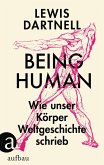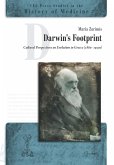The concept of heredity is fundamental to how we see ourselves and others. It goes far beyond the obvious continuity of physical traits across generations. We routinely ascribe similarities in personality, intellect, outlook, and aptitude between family members to what's passed down in sperm and eggs. The simple idea that children take after their ancestors has long been central to science and medicine and to the breeding of plants and animals. It has also been used for ideological purposes to impute innate differences in character and rationality between males and females and among different ethnicities and social classes. Slavery, colonialism, and genocide, the unequal treatment of women, and the concentration of power and wealth in the hands of the few have been consistently rationalized in the language of heredity and 'natural' hierarchy. In this Very Short Introduction John Waller traces the diverse ideas about biological inheritance expressed by Europeans and their colonial descendants during two millennia of human history. He charts the changing ways in which scholars and laypersons have believed heredity to work, the development of spurious and self-serving beliefs about heredity by dominant groups, the recent revolution in our ability to understand the mechanics of heredity, and the difficult dilemmas our species is likely to face as we gain increasing mastery over the contents of our own genomes. ABOUT THE SERIES: The Very Short Introductions series from Oxford University Press contains hundreds of titles in almost every subject area. These pocket-sized books are the perfect way to get ahead in a new subject quickly. Our expert authors combine facts, analysis, perspective, new ideas, and enthusiasm to make interesting and challenging topics highly readable.
Dieser Download kann aus rechtlichen Gründen nur mit Rechnungsadresse in A, B, BG, CY, CZ, D, DK, EW, E, FIN, F, GR, HR, H, IRL, I, LT, L, LR, M, NL, PL, P, R, S, SLO, SK ausgeliefert werden.









